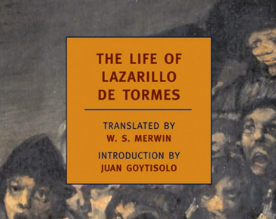XIII. How Lazaro Was a Squire for Seven Women at One Time
by LovelyMayIn Chapter XIII of “The Life of Lazarillo of Tormes,” our narrator finds himself in Valladolid, clothed in a laughably makeshift ensemble, attracting both mockery and compassion from the public. With his appearance deliberately crafted to elicit pity, Lazaro secures a modest sum of money. His fortunes take a turn when he encounters a woman, Juana Perez, who, impressed by his squire-like demeanor, quickly employs him. Lazaro discards his cane, symbolically shedding his feigned infirmity, and embarks on his new role with gusto.
Juana, veiled and mysterious, introduces Lazaro to a peculiar arrangement. She cannot afford him on her own; thus, she proposes that Lazaro serve not only her but also six other women, promising him wages from each. Lazaro’s employment with these women is diverse; his tasks range from menial to companionate. The narrative offers a glimpse into each woman’s life, with Lazaro’s services fetching him a meager but sufficient 70 coppers a day. This group of mistresses includes the wife of a tanner, a constable’s wife, a gardener’s wife, a claimed niece of a chaplain, a lively girl, and a tripe merchant who provides Lazaro with more than just monetary compensation, feeding him generously.
The last of Lazaro’s employers is a devout woman whose sanctimonious exterior belies her worldly pursuits. Her house is a hive of clandestine activity, with friars frequently visiting, often leaving behind gifts or tokens for Lazaro to spirit away.
Lazaro’s narrative lays bare the inherent contradictions and duplicity in the lives of those around him, himself included. His role as a squire to seven women underscores the precariousness of his social standing, yet it also highlights his adaptability and cunning in navigating the complex social web of Valladolid. Despite the meagerness of his earnings and the indignity of his lodgings, Lazaro’s shrewdness and humor shine through, painting a portrait of a survivor, ever resourceful in the face of adversity. This chapter not only advances Lazaro’s personal saga but also richly contributes to the picaresque genre’s exploration of societal hypocrisies and the human condition.


0 Comments